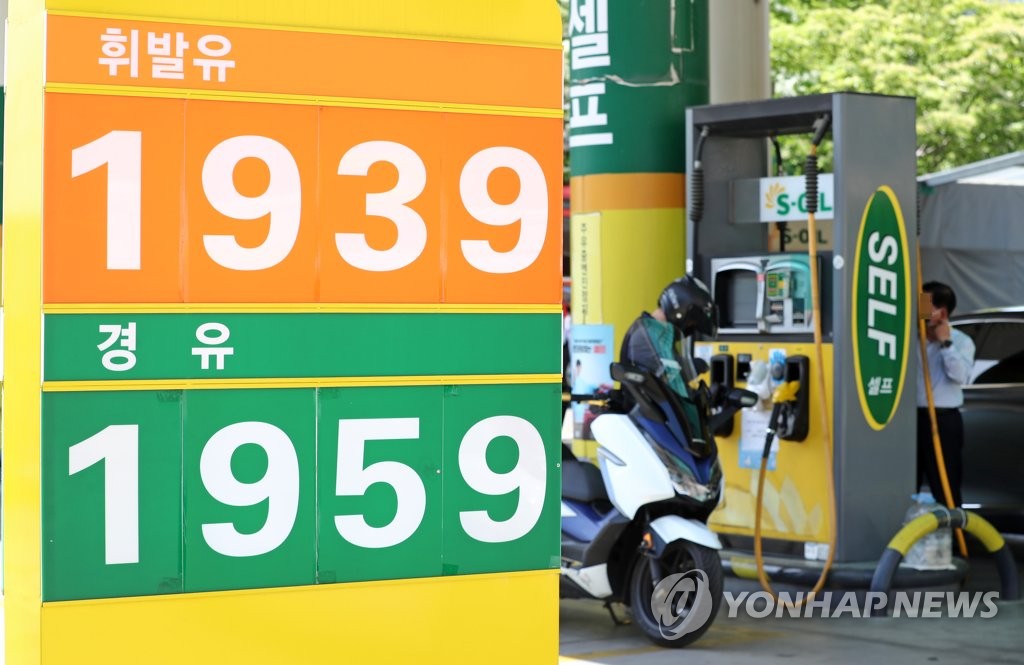- California Assembly OKs highest minimum wage in nation
- S. Korea unveils first graphic cigarette warnings
- US joins with South Korea, Japan in bid to deter North Korea
- LPGA golfer Chun In-gee finally back in action
- S. Korea won’t be top seed in final World Cup qualification round
- US men’s soccer misses 2nd straight Olympics
- US back on track in qualifying with 4-0 win over Guatemala
- High-intensity workout injuries spawn cottage industry
- CDC expands range of Zika mosquitoes into parts of Northeast
- Who knew? ‘The Walking Dead’ is helping families connect
Diesel price outstrips gasoline for first time in 14 years over tight supply, tax cut
The price of diesel in South Korea has outstripped that of gasoline for the first time in 14 years due to tight global supply stemming from the Russia-Ukraine war and recent fuel tax cuts, industry data showed Wednesday.
The average diesel price at local gas stations stood at 1,947.60 won (US$1.53) per liter, 1.5 won higher than the gasoline’s 1,946.10 won, according to Opinet, a website operated by the state-run Korea National Oil Corp. In South Korea, diesel is normally cheaper than gasoline.
Wednesday’s diesel price soared by 6.1 won from the previous day, compared with a 2.3 won increase of the gasoline price in the same period.
It marks the first time since June 2008 that the diesel price has outrun the gasoline price. The all-time high was at 1,947.75 won recorded on July 16, 2008.

A gas station in the central city of Daejeon, about 164 kilometers from Seoul, shows the gasoline price (top) and diesel price (below), with the diesel price the higher of the two, in this photo taken on May 9, 2022. (Yonhap)
The surge in diesel price came amid a supply shortage of petroleum products following international sanctions on Russian petroleum products and other energy resources over its invasion of Ukraine.
As of the first week of May, the international gasoline price had jumped 50.1 percent to $137.40 per barrel. Diesel soared 75.6 percent to $162.30 in the same period.
The government’s fuel tax cut, which took effect early this month, also played a part in pushing up the diesel price, as the fixed 30-percent cut reduced the tax for gasoline by a greater amount than that applied to diesel.
“The rise in international diesel prices and the fuel tax cut appear to have brought about this price reversal,” a KNOC official said.
“We expect this kind of trend to continue for some time unless there is a breakthrough in the international diesel supply,” the official said.
Diesel is used as fuel for large commercial vehicles such as cargo trucks, buses and construction equipment. Its price increase puts a burden on truck drivers.
To alleviate difficulties, the government has been offering subsidies to those in the cargo transportation industry from early this month, which will run for the next three months.











